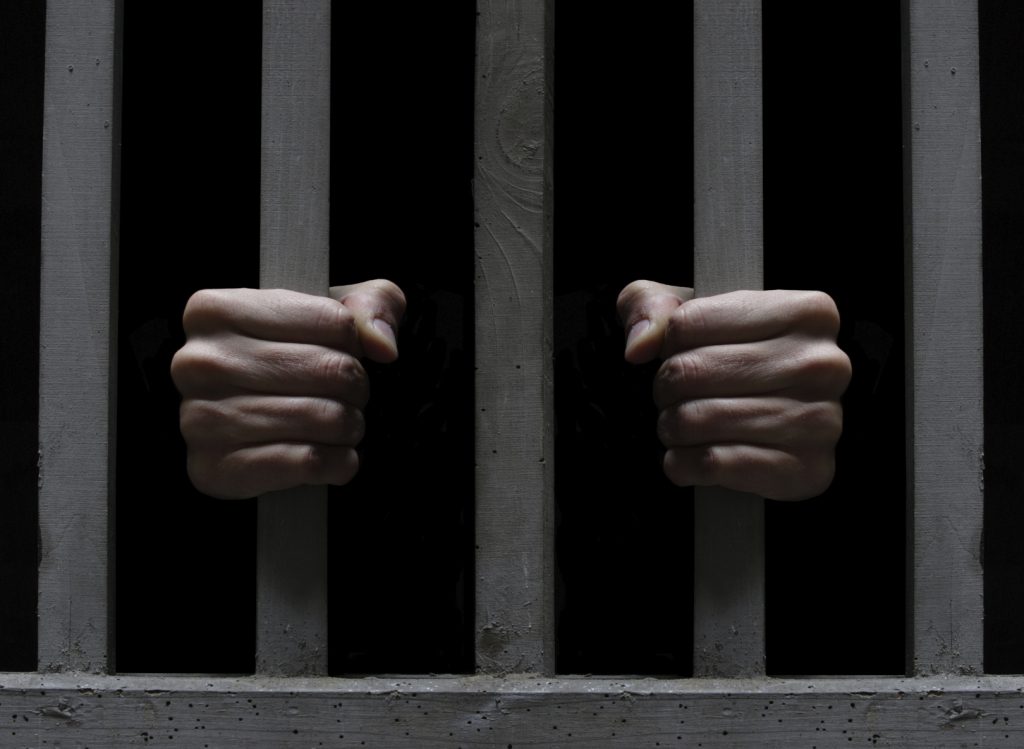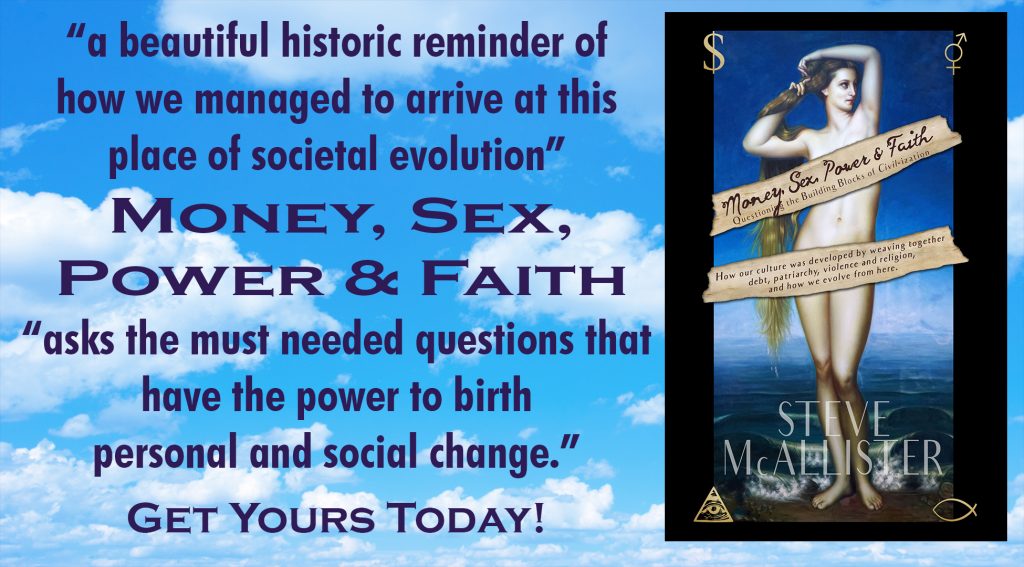The following is a chapter from Money, Sex, Power & Faith.
Order your copy in paperback or for Kindle!
“It is said that no one truly knows a nation until one has been inside its jails. A nation should not be judged by how it treats its highest citizens, but its lowest ones.” – Nelson Mandela

In the New York Times Best Seller Capital in the Twenty-First Century, economist Thomas Piketty places the United States among the most inegalitarian countries in the world. Not only do the top 10% make 35% of the money, but the bottom 50% only get a quarter of it. While 115,000 households claim to have a net worth of over 20 million dollars, each night, over 500,000 people in America are homeless, and almost 2.3 million are incarcerated.
“Nothing demonstrates the fragmentation of community in the United States more vividly than the rise in gated residential communities for the affluent and the simultaneous record numbers of people in prison,” say William Gates Sr. and Chuck Collins in their book Wealth and Our Commonwealth: Why America Should Tax Accumulated Fortunes. “Some 9 million households now voluntarily live in gated residential communities and another 2 million people are involuntarily incarcerated. More people than ever are living behind gates and walls with entrances patrolled by armed guards. This polarization disturbs the equilibrium of a democratic society. It is in no one’s interest for the United States to become more like some of our South American neighbors, such as Brazil, with such extreme levels of inequality. What kind of nation do we want to become?”1
Unfortunately, one of our greatest boasts is that the “land of the free” has the largest prison population in the world, and in per-capita incarceration rates, we are second only to Seychelles, which has the smallest population of any independent African state. The incarceration rate in the US is five to ten times higher than the rates in Western Europe and nations that purport to be democracies, with nearly one out of every hundred adults in prison or jail. With the mandatory sentencing that came with the War on Drugs against non-violent offenders, the American prison population has quadrupled over the last four decades, largely filling prisons with young minority males who are poorly educated and from lower income families.
While wealthy citizens are able to pay fines whenever threatened with incarceration, many Americans are now held in jails and prisons merely because they are unable to pay for fines, fees, debts, or proper defense. Additionally, many prisons serve as repositories for drug addicts and the mentally ill since Ronald Reagan cut funding for federal community mental health centers in the 1980s to support his “trickle down” economic initiative. Yet, the prison industry itself has become a multi-billion dollar a year system in which private companies are now signing contracts featuring inmate quotas to ensure that law enforcement officers arrest enough people to keep prisons full.
Not only do states pay for prisoners to stay in the more than 130 prisons throughout the country, the prisons can also pay prisoners pennies per hour while forcing them to work as cheap labor for large, for-profit corporations in order to reap the greatest profits. To pull off this scheme of capitalizing on the suffering of the nation’s poor, the Washington Post reports that GEO and Corrections Corporation of America (currently rebranded as CoreCivic), the two largest for-profit prison companies in the United States, “have funneled more than $10 million to candidates since 1989 and have spent nearly $25 million on lobbying efforts,” resulting in a combined annual revenue of 3.3 billion dollars.1
Of course, penalizing the poor is nothing new in America. “The civil and criminal procedure of the Americans has only two means of action, committal or bail,” observed Alexis de Tocqueville in 1835. “It is evident that such a legislation is hostile to the poor and favorable only to the rich. The poor man has not always security to produce, even in a civil case; and if he is obliged to wait for justice in prison, he is speedily reduced to distress. A wealthy person, on the contrary, always escapes imprisonment in civil cases; nay, more, if he has committed a crime, he may readily elude punishment by breaking his bail. Thus all the penalties of the law are, for him, reduced to fines. Nothing can be more aristocratic than this system of legislation. Yet in America it is the poor who make the law, and they usually reserve the greatest advantages of society to themselves. The explanation of the phenomenon is to be found in England; the laws of which I speak are English, and the Americans have retained them, although repugnant to the general tenor of their legislation and the mass of their ideas.”1
Perhaps they are the vestiges of self-loathing that still remain from the foundation of our “Catholic shame” and the idea that poor sinners are undeserving of blessings. Although we love to pat ourselves on the back regarding our freedoms and liberties, we continue to pay people more and more money to make more laws so that we may have more reasons to be punished for someone else’s profit. Perhaps our indulgence in imprisonment is merely indicative of the state of our society. As Rousseau wrote in The Social Contract, “In a well governed state, there are few punishments, not because there are many pardons, but because criminals are rare; it is when a state is in decay that the multitude of crimes is a guarantee of impunity.”
Perhaps Americans allow ourselves to suffer these atrocities because, on some level, we know that what our country has become is a burden upon the rest of the planet. Further, as much as we may want to judge those top 400 income-earners for their reluctance to share with the rest of us, we feel even worse about the fact that so many of us want to be just like them. However, whether we are conscious of it or not, it is that mentality of taking more than we need in the name of self-interest which grieves us so.
“Fact one: Currently humanity uses 30 percent more of our planet’s natural resources than we can replace,” state Peter H. Diamandis and Steven Kotler in Abundance: The Future Is Better Than You Think. “Fact two: If everyone on this planet wanted to live with the lifestyle of the average European, we would need three planets’ worth of resources to pull it off. Fact three: If everyone on this planet wished to live like an average North American, then we’d need five planets to pull it off.”
Moving forward, as we build upon what we have learned over the course of these last 10,000 years, may we build a new economy, based not on punishment, selfishness, divisiveness, and waste, but on equality, collaboration, acceptance, and understanding.
Order your copy of Money, Sex, Power & Faith today!


